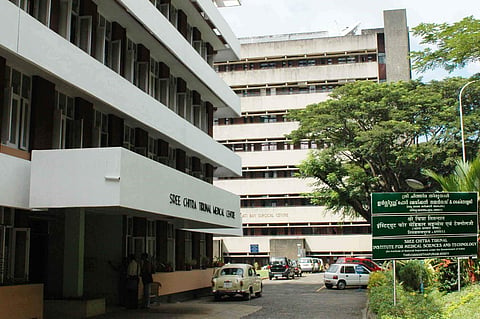

The Sree Chitra Tirunal Institute for Medical Sciences and Technology (SCTIMST) in Thiruvananthapuram has indigenously developed a device for the prevention of Deep Vein Thrombosis. "The institute has applied for a patent and has a scientific publication on this technology," Dr Asha Kishore, Director, SCTIMST said. Deep Vein Thrombosis (DVT) is the formation of blood clots in deeply located veins, usually in the legs.
Normally blood in the veins of the legs is returned to the heart by the contraction of muscles of the legs during walking. DVT is caused by prolonged immobility and bed-ridden state, post-operative immobilisation, paralysis of legs, stroke, pregnancy, dehydration, use of certain drugs, travel by long flights without moving, etc. The symptoms of DVT are pain, swelling, redness, warmth engorged surface veins, a press release from the institute, under the Department of Science and Technology, Government of India, said.
The detachment of the clot from the veins and its transport to heart and into the artery carrying impure blood from the heart to the lungs can cause 'pulmonary artery embolism,' a potentially life-threatening complication. The device works by compressing the veins in the legs in sequence so that the flow of blood from the veins in the legs is facilitated. The compression pressure is set in such a way that the veins are compressed but not the arteries.
The device is equipped with a closed loop monitoring of compression pressure and electronic controls. A dedicated software is also provided in the device to ensure that safe compression levels are always maintained. It is also equipped with power supply backup, the release stated. While the cost of the imported device varies from Rs two lakh to Rs five lakh, it is estimated that the indigenous equipment can be manufactured and sold for less than Rs one lakh, Dr Asha said.
